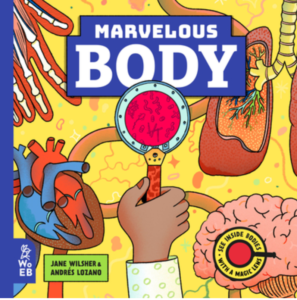Do you remember reading books like the one above when you were a child? If you don't, you might follow the link attached to the photo to buy yourself a treat. I always thought it was super cool to hold the colored plastic over an image to reveal something I hadn't seen there before. The device felt like magic, but because its color matched whatever part of the image needed to be ignored, the film allowed the otherwise hidden images to stand out. How wonderful to be handed a tool that disappears everything extraneous! Few of the books I read these days have illustrations, but I take the lesson of the pseudo magnifying glass with me.
At one point, I was talking with someone dear to me about depression. The person said, "It's like looking at the world through sh*t-colored glasses." What a perfectly phrased corollary to the more common idea of looking at the world through rose-colored glasses. While the world objectively doesn't change, the person's understanding of it is fundamentally altered depending on what their lenses reveal or conceal. Unfortunately, people with clinical depression can't just decide to swap out the fecal-viewfinders for rainbow-unicorn ones, so I suppose this post is written mostly to people who don't experience depression. For those who do, I hope you're getting the help and medication you need to change your frame. You deserve to see the joy that might be hidden from you though it exists right now.
This next part might feel like a jump, but I'll come back to the magic lenses. Last summer, my Noble Book Club (Hi, Readers!!) read Abraham Verghese's The Covenant of Water. If you haven't read it yet, you might want to. It's a stunning novel. The two passages I'm going to share won't give anything away, but here they are.
- I often think about Armauer Hansen. So many scientists looked under the microscope at leprous tissue before him, but they didn't see the leprosy bacillus. It's not that hard to see! It's because they'd decided no such thing could be there. Sometimes we must imagine what is there to find it. (584)
- The voyage of discovery isn't about new lands but having new eyes. (588)
Both of these passages get at the idea that we see not with our eyes but with our brains. What information passes through our retinas makes sense only once our minds process it and tell us what we're seeing. If we can come to the world with an open mind, we might as well have the magic magnifying glasses. By reminding ourselves of the possibility that there is good out there we haven't seen, we can train our eyes to search it out.
What do you think? Can we choose what lenses we use? When you feel yourself in a slump of cloudy optics, what techniques do you have for finding your plastic overlay of positivity? Please share any ideas in the comments.

People suffering from major depressive disorder see everything negative through binoculars. When they look at anything positive, the binoculars rotate, so everything looks farther away. It’s a sad situation.
People suffering from depression should seek biological, psychological, and environmental help.
This is very good advice. Thank you. It’s important to get all the help we need to be able to swap to the best frames, not rose-colored or unrealistic, but beneficial, hopeful, and productive.